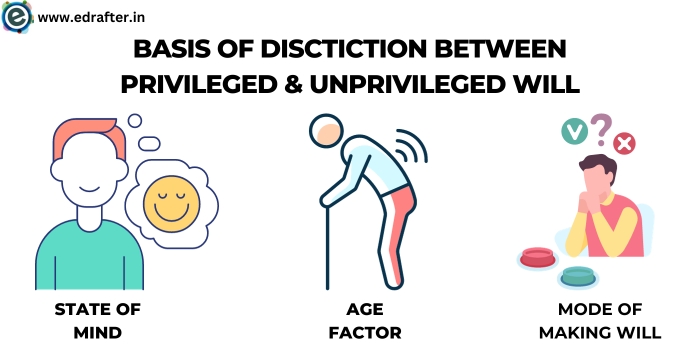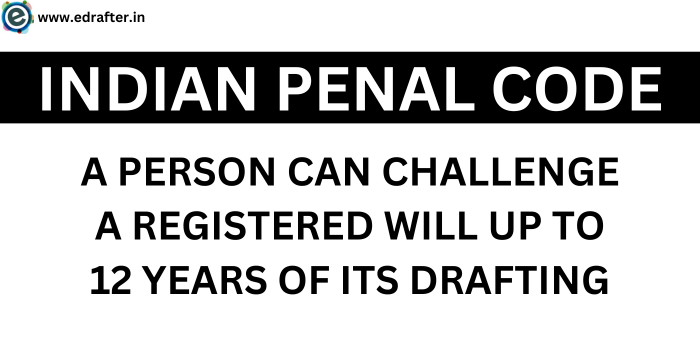
Table Of Content
- What are the Different Types of Will in India?
- What are the Conditions in Indian law for executing a Valid Will?
- Which Property can be given in Will?
- How do you Prove a Will is valid?
- What is the Time Limit for Challenging a Will in India?
- Which Type of Will is Right for me?
- Conclusion
A Will also known as Wasiyat according to Muslim Law is a Legal Document prepared on a plain paper rather than on a Stamp paper where the Testator writes down his entire assets in the name of his family, friend, relative or to a Charity out of love.
Around 54% of the total population of Adults do not own a WILL as there is a belief that only Old Age people can prepare a WILL however it is not true; any person attained a age of 18 years is eligible to prepare a WILL however either they do not wish to prepare or are confused that which type of WILL would fulfill their needs. A WILL can be further divided into many depending upon the Religions but the major one has been discussed below:
What are the Different Types of Will in India?
Mainly there are two types of Will are there in Hindu Law which are as follows:
Privileged Will
This is one of the kinds/types of Will in India. The Privileged Wills are prepared by the Military soldiers who are at the border and are risking their lives for our country. Only personnel of the armed forces who are actively involved in hostilities or other forms of military training are permitted to draft privileged wills. This sort of testament has the benefit of being legally legitimate even if it is delivered verbally and without the use of paper because of the potential for a loss of life and the time limits of these circumstances. To establish that an oral declaration of this kind is valid under the law, at least two witnesses are needed.
Note: Under Section 66 of Indian Succession Act, 1925 that If a soldier or mariner exceeds the Age of 18+ years then they are required to create a Will in order to distribute their assets and properties.
Unprivileged Will
The second Type of Will in India is Unprivileged Will.The provisions of Section 63 of the Act apply to unprivileged wills. According to the aforementioned law, a testator who is not a soldier on an expedition or involved in actual combat, an airman in such employment or engagement, or a mariner at sea creates an unprivileged will. In plainer terms, those people who do not qualify as soldiers, airmen, or seafarers will be considered unprivileged wills.

| Basis of Distinction | Privileged Will | Unprivileged Will |
| State of Mind | It can be made by a person without a Sound Mind. For example, if a soldier is at risk of death then he can make his WILL verbally as well. | A commoner without a sound mind cannot make a WILL. For example, if a person is suffering from any serious illness like paralytic or bedridden condition then a WILL cannot be prepared. |
| Age Factor | In privileged WILL after turning 18 years it becomes mandatory for the Soldiers to prepare the WILL. | Here for the commoners it is not mandatory they can take their time to make the WILL. If they want they can make their WILL as soon as they turn 18+ or they have a choice of making it later also. |
| Mode of making WILL | Under privileged WILL, one can make a verbal Will and it will be considered Legally valid | Here, only a written Will with Witnesses is eligible and legally valid, Verbal Will cannot be taken into consideration. |
According to the Indian Succession Act 1925 two types Will are there in Muslim Law are as follows:
Wasiyat
Certainly in Muslim law,It is a voluntary bequest that allows a person to distribute a portion of their wealth and property to heirs who are not entitled to inherit under the rules of Mirath. Wasiyat provides the opportunity to leave property to non-heirs, such as friends, charities, or distant relatives, according to the wishes of the person making the Will. It is important to note that the portion that can be bequeathed through Wasiyat is subject to certain limitations and conditions outlined in Islamic law.
Mirath
On the other hand, it refers to the distribution of Wealth and property among the heirs only according to the Islamic inheritance laws. It ensures that the property of the deceased person is divided among their heirs in a fair and prescribed manner. Mirath follows specific rules and shares for different relatives, such as children,parents,spouses, and other relatives. It aims to uphold justice and maintain the rights of each heir in the distribution of the deceased’s estate.
What are the Conditions in Indian law for executing a Valid Will?
The conditions in Indian Law for executing a valid Will are as follows:
- The age period for making a Will must be 18+. Minors do not have the power to prepare a Will.
- An adult in a good state of mind and not suffering from any kind of serious illness can prepare the WILL. Person suffering from Mental health conditions, paralytic or bed-ridden is not eligible to create the WILL.
- Excluding Muslims womens other married womens do have the right to create a Will.
- The Will is prepared on a Plain Paper. Stamp paper is not required while executing the WILL, only paying appropriate Registration Fees is important.
- The Will can be prepared by Deaf and Blind person through the help of their Dictator or by a trusted person.
- Getting the WILL registered is very important or else certain Legal formalities need to be carried out by the Legal Heirs and Beneficiaries in order to proof that the WILL is genuine and valid.
Which Property can be given in Will?
The properties which are self owned can only be distributed among the beneficiaries. A property with the Joint-ownership can also be bequeathed under the WILL. Only the particular owned part can be transferred.
A gifted property or rented assets are not eligible to be mentioned in the Will. It is important to mention the Land Size and other details as per the Original Sale Deed of the Property, Incomplete details make the WILL legally invalid.
How do you Prove a Will is valid?
The Will can be proven valid under the three Sections of Evidence Act 1872, the validity involves the authenticity of the contents written in the Will and execution proof.
Under the Section 67 of Evidence Act 1872 the handwriting in the Will or by the signatures of the Testator and the Witnesses the Validity is cross-checked that the writing and signatures are of the same people or not on the Will.
As per the Section 68 of Evidence Act 1872 that is a legal document that has to be attested by the Law of India then it shall not be taken as an Evidence in Court. Unless anyone of the attesting Witnesses is present at the time of execution to prove its validity. The presence of at least one Witness should be present at the time of execution.
Then again under the Section 69 of Evidence Act 1872 in regarding the marriage the Will shall be revoked under the provisions marriage of the maker excluding some of the special cases according to the Will to prove it’s validity. On the other hand, if the marriage is considered as invalid then the Will cannot be revoked no matter what the case is.
What is the Time Limit for Challenging a Will in India?

As per the IPC (Indian Penal Code) a person can challenge a registered Will up to 12 years of its drafting. But it is considered that if the person challenging the Will takes a long time to challenge it then the flaws in a Will would vanish and it won’t matter that much. It would be difficult for the challenger to point out the flaws in the Will. Also if a contestant takes approx 10 years to challenge the Will then he/she needs to provide a valid reason in delaying this to the Court.
The Claims that the person is imposing on the Will. Which needs to be looked in by the Court to see the validity of the points in them. Also the behavior of the challenger is noticed and noted also the Court has to keep everything on point since the Will can be challenged by any of the family members of the deceased Testator.
Which Type of Will is Right for me?
A question which every person comes up with is that if they are required to create a Will so which type of Will he/she should create. The answer is simple: what are their requirements for the Will. An army person can prepare a Privileged Will and the commoners have the option of preparing an unprivileged Will. It is also said that different religions have their own types of Will. Such as Conditional Will, Holograph Will, Concurrent Will and so on.
Conclusion
The Laws and rules governing Wills in India are outlined in the Indian Succession Act. Every person needs to make a WILL to make sure their possessions are transferred to their intentions after death. Depending on their particular demands and requirements, one can choose from the various types of Will in India. eDrafter helps you by drafting your WILL at a very reasonable price and delivering it at your Doorstep.


